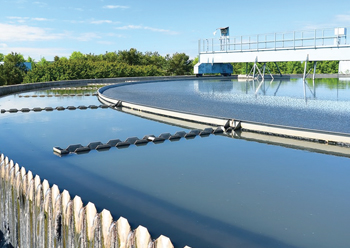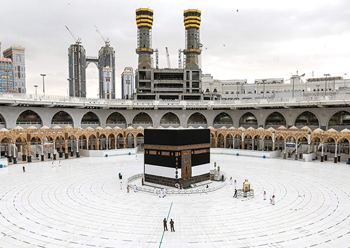
 A waste water plant by SWPC ... the Taif treatment plant will boast a capacity of 270,000 cu m per day on completion.
A waste water plant by SWPC ... the Taif treatment plant will boast a capacity of 270,000 cu m per day on completion.
Spanish infrastructure group Cobra, along with its consortium partner Saudi-based International Water Distribution Company (Tawzea, has begun work on a major independent wastewater project in the Taif region, said the project developer Saudi Water Partnerships Company (SWPC).
The Taif Independent Water Treatment Plant is being implemented on the BOOT (build, own, operate,transfer) model and will boast a total production capacity of 270,000 cu m per day once completed, it stated.
To be developed in two phases, the plant will treat 100,000 cu m per day in the first phase, while the second phase, with a capacity of 170,000 cu m, will be launched when the usage rates exceed the operational capacity, necessitating its expansion.
The construction of the station is scheduled to be completed and set for operations in the third quarter of 2022, said SWPC.
Its CEO Engineer Khalid bin Zuwaid Al Quraishi laid the foundation stone for the Taif Independent Water Treatment Plant in the presence of Tawzea Board Chairman Dr Soliman Al Tuwaijri and M Giorgio Remyere, a senior official of the Cobra Company and other senior company officials.
In November last year, SWPC had announced the successful financial closure of the key Saudi sewage treatment plant project.
As per the deal, Cobra-Tawzea consortium would be responsible for the funding and development of the project. The duo will also offer engineering, procurement and construction (EPC) services along with ownership, operation and maintenance services for a period of 25 years and then transfer its ownership to the SWPC.
The total financing of the project, which is worth about SR320 million ($85 million), will come from a local bank.
A new entity, Taif Independent Water Plant Company, has been set up to manage and operate the plant after construction for a period of 25 years within an exemplary framework for a public-private partnership that reflects the Kingdom’s 2030 vision in the context of privatizing infrastructure projects.








.jpg)




.jpg)




























.jpg)





































.jpg)